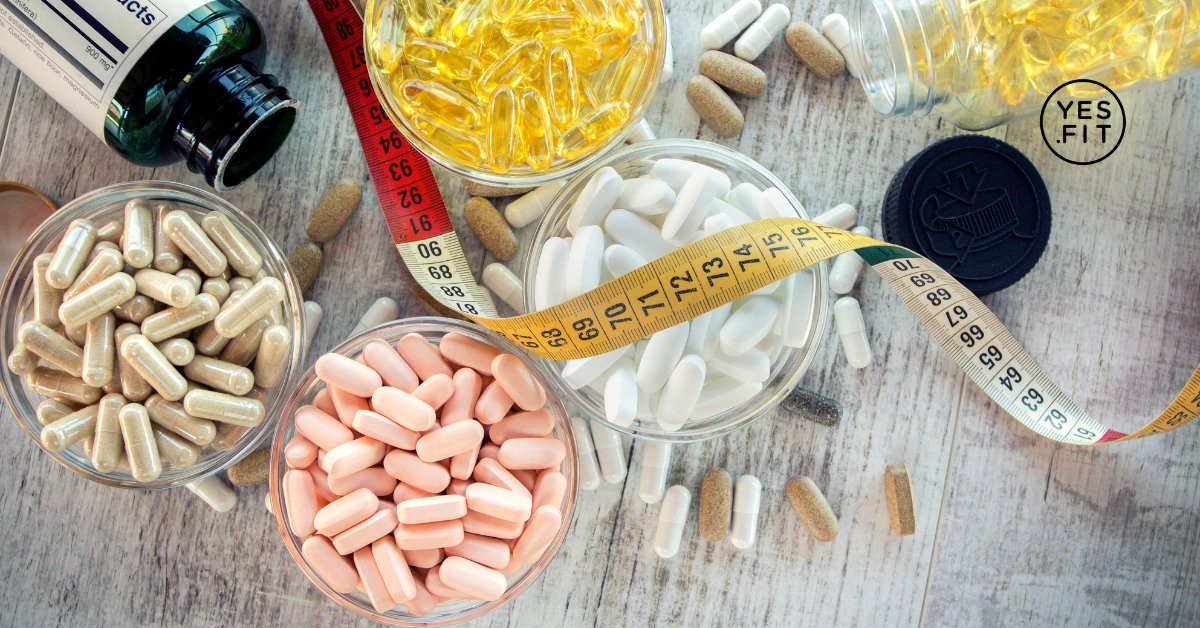Supplements 101: Understanding the Shelf
Within the last few years, supplements have become one of the most common household items. By definition, a dietary supplement is a form of a substance used in either a pill, liquid, or powder form to aid and support more balanced nutrition.
Overall they claim better health which means a better life. But is it all true? Is there such a thing as too much of a good thing? And, how do you know what you're supposed to be taking?
First, we have to understand whose research is backing the pill push. Only a couple of years back the vitamin industry was estimated at around 140 billion.
Jumping to the near future of 2027 it is projected to reach almost 231 billion. Meaning the average American is spending roughly 650 dollars annually on minerals, vitamins, and supplements. (1)
With a rapidly growing market, big brands and celebrity health gurus have found a niche for sale pitch in a society that has become much more aware of what they are putting into their bodies.

With a lot of misinformation out there about what's best for you, it's hard to know if you're doing the right thing. No matter what one thing remains very clear.
Just because someone claims it worked for them, does not mean it'll have the same results for you.
That can be applied to many aspects of the fitness industry but this one especially. There is no magic pill that will just make your dream body happen.
Taking too much of something can be harmful. Especially if you have any medical conditions or if you are already taking other prescriptions.
One prime example is just how Vitamin D has been on the rise ever since the pandemic as a boost to immune systems. However, too much Vitamin D can cause harm to the kidney causing permanent damage. This damage is called vitamin toxicity.
With things like vitamin toxicity out there, you must tell your doctors everything and open with them. It’s their profession to understand these delicate supplement cocktails, not yours.
So when the nurse asked, “what have you been taking?” That isn't just referring solely to prescriptions. Rather be safe than sorry.

Understand that while it sounds scary and uncharted, your body is unique. So supplements can be helpful for you. If you fall into the half of America that has a magnesium deficiency then a magnesium supplement could be beneficial for you.
As long as you ask your healthcare provider it is safe with your current conditions. Something that small could have huge effects on your mood as well as muscle cramps and even improving your endurance.
Another common one is brain food
Omega- 3. Rather than eating a ton of fish and increasing the chances of Mercury poisoning or other toxins, taking a small fish oil supplement would give you the fatty acids your body needs. Again, supplements are not for everyone and you should ask your medical professional for their opinion.

In short, you should always try to get your nutrients from your diet and not a bottle. If you could implement any imbalance correction with a change in food rather than a trip to the pharmacy your body and bank account will thank you for it. Supplements are supposed to assist any deficiencies but shouldn’t be the sole option.
Always inform your doctor of supplements taking, or interest in taking. Don't be afraid to do your research as well and come to your doctor with any questions.
Make sure you aren't just buying a product because a health guru told you to do so. Invest in supplements that will invest in you.
Lastly, always read your labels. Make sure you're not buying supplements that have lots of additives or fillers. Depending on what it is, go for plant-based or organic. Make sure you're making the right choices for your optimal health.
Don't forget that you can check out our podcast about this topic and lots of others. We come out with a new podcast every Wednesday. Click below to check it out!
_______________________
Resource:
1: Grand View Research. “press room.” Dietary Supplements Market Worth $230.7 Billion By 2027 |, https://www.grandviewresearch.com/press-release/global-dietary-supplements-market.








